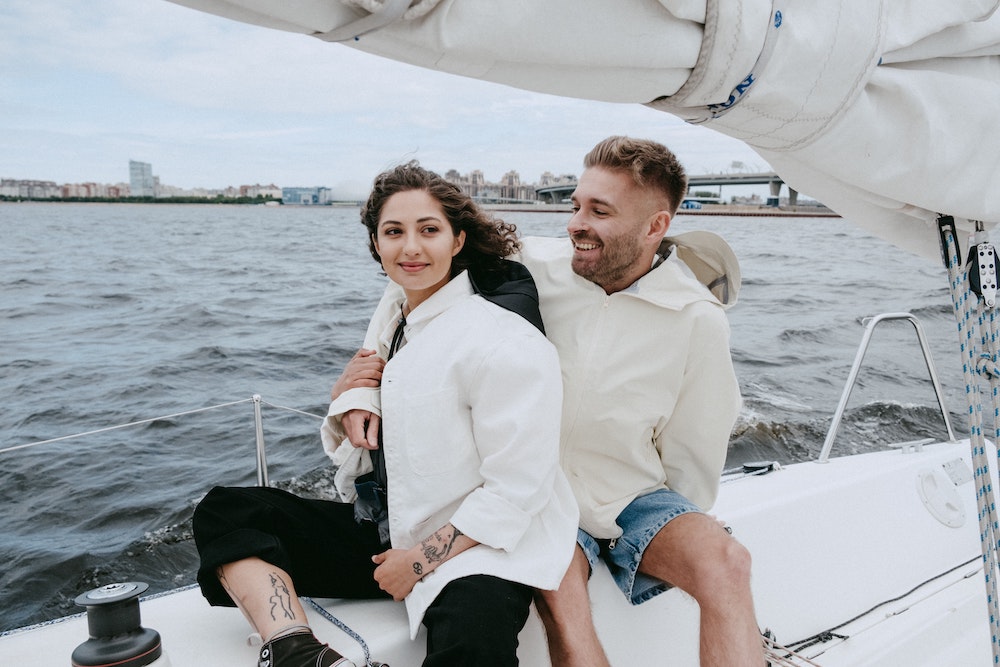Sharing is caring!
Introduction:
Dating can be a thrilling journey, filled with the promise of love and companionship. However, it can also be fraught with pitfalls if we’re not vigilant. In this article, we’ll explore the crucial art of steering clear of relationship disasters when dating. We’ll discuss red flags to watch for, key characteristics and behaviours to seek, and the significance of preparing ourselves for long-term relationships, all while taking into account the profound impact of Childhood/Complex Trauma. Drawing insights from Emotionally Focused Therapy (EFT) and the research of Dr. John Gottman, we’ll shed light on the path to lasting and fulfilling love.
The Early Warning Signs: Red Flags in Dating:
- Lack of Emotional Availability: If your date struggles to express emotions or avoids discussing their feelings, it could be a sign of emotional unavailability. If your partner consistently fails to show empathy or disregards your emotions and needs, it’s a significant red flag.
- Inconsistency: If your date’s words and actions don’t align, or if they frequently cancel plans or change their behaviour abruptly, it could be a sign of unreliability. They may seem warm and affectionate one moment and distant or cold the next. Consistency is key to building trust.
- Communication Challenges: Difficulty in effective communication can hinder the growth of a healthy relationship. Take note if your date is dismissive, defensive, quick to criticise, contemptuous or unwilling to listen.
- Defensiveness: Pay attention to how your date reacts to criticism or feedback. If they become defensive or dismissive, it may indicate difficulty with emotional vulnerability.
- Avoidance of Difficult Conversations: Healthy relationships require open discussions about challenging topics. If your date consistently avoids such conversations, it could be a cause for concern.
- Frequent Criticism or Contempt: Pay attention to how your partner communicates during conflicts. Frequent criticism or contemptuous behaviour can erode the foundation of a relationship.
Key Characteristics to Seek:
- Self-Awareness: A partner who has worked on their own emotional healing and self-awareness is more likely to have healthy relationships.
- Emotional Availability: Seek partners who are emotionally available and open to genuine connection. They should be willing to share their thoughts, feelings, and vulnerabilities.
- Empathetic Listening: Look for individuals who actively listen, validate your feelings, and respond with empathy. Empathetic partners create a safe space for open communication. A compassionate partner can provide emotional support during tough times.
- Healthy Conflict Resolution: Seek partners who approach conflicts with a willingness to understand and find mutually acceptable solutions. Healthy conflict resolution is a sign of a mature and balanced relationship. A partner who seeks solutions rather than blame is a keeper.
- Respect and Kindness: Respect and kindness are non-negotiable. Partners who consistently show respect for your boundaries and treat you with kindness create a nurturing environment.
- Commitment to Growth: A willingness to address personal issues and grow both individually and as a couple is a positive sign.
The Impact of Childhood/Complex Trauma:
Childhood and complex trauma can cast long shadows on our adult relationships. Unresolved traumas can manifest as emotional baggage that affects our ability to connect and trust. Recognising these scars and addressing them through therapy or self-reflection is essential for building a healthy relationship foundation.
EFT’s Perspective: Healing through Connection:
Emotionally Focused Therapy (EFT) highlights the importance of emotional connection in relationships. When dating, EFT reminds us to seek partners who are open to emotional intimacy and vulnerability. EFT encourages us to recognise and address attachment insecurities that may stem from past trauma.
Gottman’s Research: The Power of Emotional Intelligence:
Dr. John Gottman’s research underscores the significance of emotional intelligence in relationships. When dating, we should look for partners who demonstrate emotional awareness and regulation. The ability to navigate complex emotions is an indicator of long-term relationship success.
Preparing for Long-Term Love:
Before embarking on a long-term relationship, it’s crucial to prepare ourselves emotionally and mentally. This includes addressing past traumas, developing effective communication skills, and nurturing emotional intimacy. Self-awareness and personal growth are essential ingredients for a thriving partnership.
- Self-Reflection: Take time to understand your own attachment history and how it might influence your relationship dynamics.
- Effective Communication Skills: Build your ability to communicate openly, listen actively, and express empathy.
- Boundary Setting: Learn to set healthy boundaries to protect your emotional well-being.
- Therapeutic Support: Consider seeking therapy or counselling, especially if you’ve experienced Childhood/Complex Trauma or are navigating challenging dating experiences.
Conclusion:
Dating is a journey, and it’s essential to navigate it with mindfulness and awareness. By recognising red flags, seeking key characteristics in potential partners, and addressing the impact of childhood/complex trauma, we can lay the foundation for a healthy and enduring relationship. Emotionally Focused Therapy (EFT) and Dr. John Gottman’s research offer invaluable insights into building and sustaining love. As we embark on this journey, let’s remember that the voyage to lasting love begins with the wisdom to steer clear of relationship disasters and the courage to seek love that enriches our lives.
Testimonials
"Thanks, Aaron, we could feel the benefits of each couple counselling session, even in our first session. We had done lots of work with different psychologists individually and as a couple prior to our first session, but the work with you feels deeper and different, in a good way. Just by helping us to slow down during the session makes us more aware of our primary emotions."

“Aaron is a truly talented psychotherapist and relationship counsellor who cares deeply for his clients. I recommend his services without hesitation. Thanks for taking our marriage from ‘good’ to ‘amazing’ Aaron, we are forever grateful!”

“My husband and I were very fortunate to see you … You (without a doubt in my mind) saved our marriage. Everything is wonderful currently … Eternally grateful. I truly mean every word. Very grateful to you”

"Aaron was very straight forward and honest. Clear about the approach and consistent in helping us change our patterns. The greatest accomplishment through this counselling process is connecting with my partner on an emotional level."

"I couldn't find the words ... Thank you so much for helping us throughout my family problem and obstacles ... not just our marital problems but more particularly to my son ... you're such a truly blessing to him."

"What we gain through the couple counselling process with Alive Counselling was greater insights into family of origins and the sources of [our] emotional pain. Stronger connection to partner."

“Thank you for the difference you’ve made to the life of our family. We are so blessed to have found you.”

"Aaron helped my partner and I reconnect. Not only with each other but within ourselves. Really listening to each other and not just 'doing the angry, dysfunctional dance'. We received lots of practical tips to manage in times of stress."

"Aaron is very patient and level headed ... What we gain through the couple counselling process with Alive Counselling was better awareness of the emotional cycle and triggers with my partner. What was most helpful about the counselling process was slowing the emotional reaction down to get to a calmer position ."

"The greatest accomplishment through this couple counselling process, was developing emotional vulnerability and being celebrated for that. What I like about Aaron is his excellent construction of a safe environment. Very educational process."

“[My partner] and I are doing well. We continue to use your strategies to slow things down ... We have also recommended you to friends of ours.”

“We used to think the ’honeymoon phase’ is just the early experience of a relationship that will end, and did not realise it is possible to feel the same ‘honeymoon’ experience again. Through the counselling process, we are so excited that we can connect deeply like we did early in our relationship.”

“[What I gain from the counselling process with Alive Counselling] It reminded me that there is a reason for everyone’s behaviour and to be more conscious and empathetic of that.”

“[The most helpful part of the counselling process] Insight to where a lot of my characteristics come from and why. Being reminded of what the basic needs of every human is.”

“[What I like about the way my counsellor works] Was able to bring out a lot of things about myself that I hadn’t realised. I did find counselling helpful and I thank Aaron for his time and advice.”

“[The benefits or changes I noticed in myself] Being able to label emotions and address them in the moment and being more mindful of my partners emotions.”







